2009-2004
2009 Celebration! — Franklin's Legacy: Achievements After Retirement
P. Roy Vagelos, M.D.
Many of Benjamin Franklin's greatest achievements occurred after his retirement from his professed career, printing, at the age of 46. Having built the capital he needed to devote his time and talents to specific interests, he reveled in the opportunity to pursue his scientific experiments, to serve as Governor of Pennsylvania, to work for the interests of the colonies in London, to craft the founding documents of a new nation, compromises amongst his fellow Americans and treaties amongst foreign nations. All this accomplished as he also dabbled with wine, music and friends, the rewards of a successful life.
This year's birthday celebration, which pays tribute to Dr. Franklin, explores the ways in which contemporary Americans are choosing to spend their retirement in ways which enhance local, national and global interests.
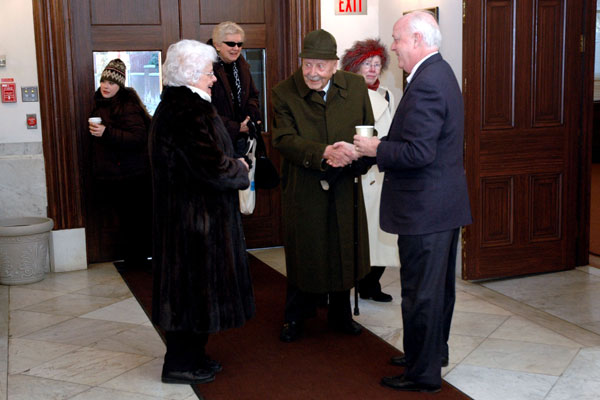
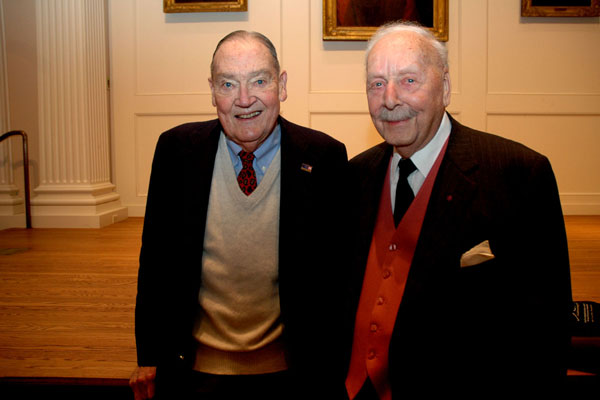
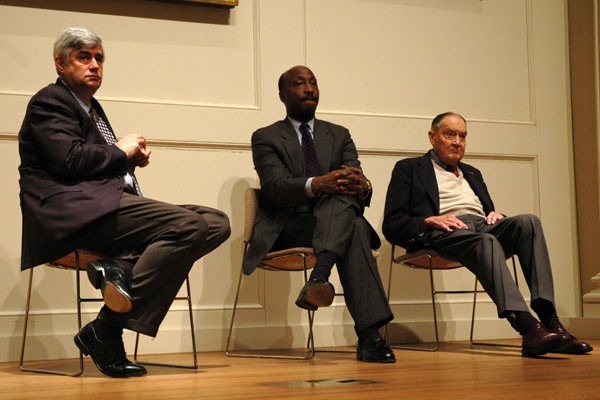
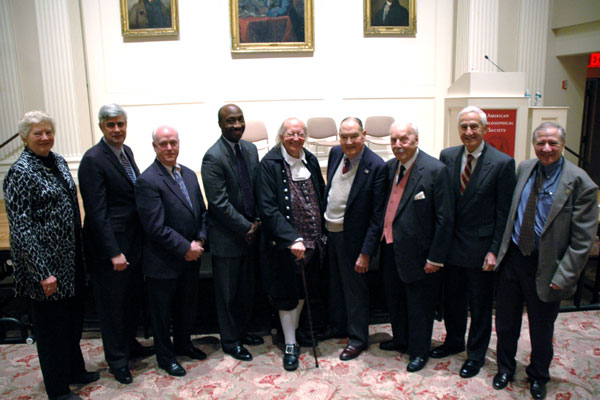
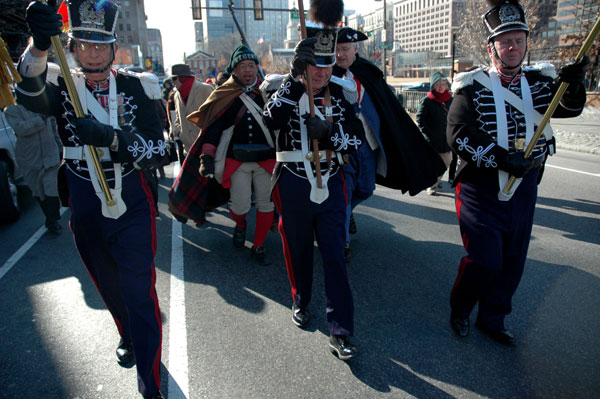
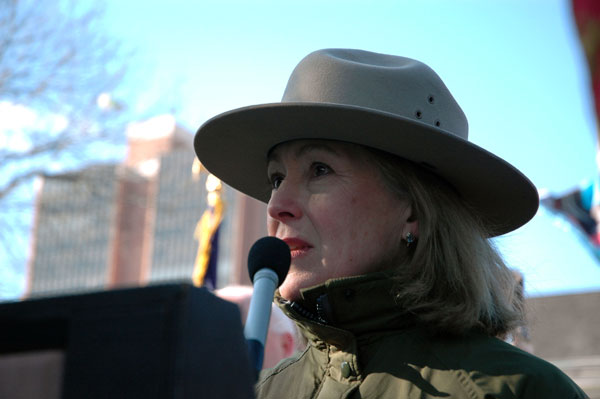
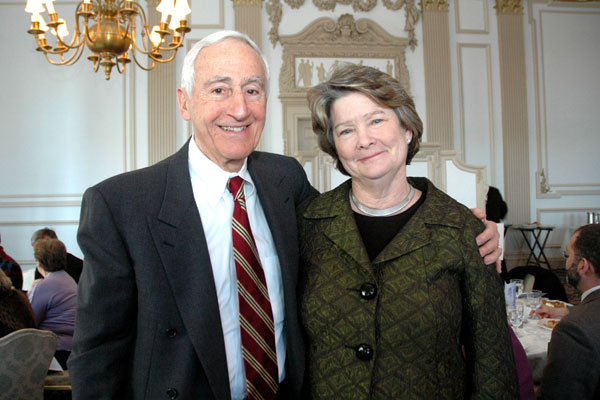
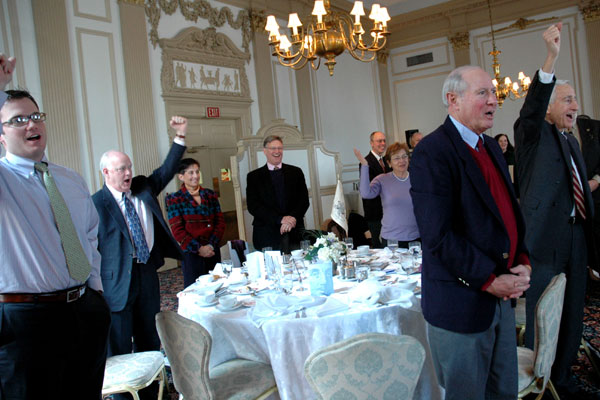
Seminars
Retiree Choices Yield Global Benefits
Introduction by P. Roy Vagelos, M.D.
Retired Chairman and CEO, Merck & Co. Inc.
The Global Challenge of HIV
John C. Pottage, Jr., M.D., Senior Vice President, Infectious Diseases Medicine Development Center, GlaxoSmithKline
Fighting River Blindness: MECTIZAN and the Power of Partnerships
Kenneth C. Frazier Executive Vice President and President, Global Human Health Merck & Co., Inc.
The Joy of Not Retiring
John C. Bogle
Founder, Vanguard
"Disease Prevention — A Strategy Benjamin Franklin Would Support"
P. Roy Vagelos, M.D., will share some of his insights on his international work to alleviate to diseases in developing countries in the keynote address.
In Memoriam
The world of Franklin scholars has lost a its leading members within the last few months: Dr. Whitfield J. Bell, Jr., who died on January 2 at the age of 94, and Dr. J.A. Leo Lemay who died on October 15. Dr. Bell or Whit as he was known to his colleagues and friends, taught history at Dickinson College from 1945-1954, but soon narrowed his interest when he began working with the American Philosophical Society and Yale University to begin a project to publish the papers of Benjamin Franklin. The project no doubt far exceeded the expectations of Dr. Bell and his colleagues; The Franklin Papers at Yale have just announced publication of volume 39. Dr. Bell continued his affiliation with APS, serving as librarian and later as the executive director from 1977 until he retired in 1983. He died on January 2. He has been a frequent guest at these luncheons and we will all miss him.
No doubt Whit Bell influenced Dr. J. A. Leo Lemay as well, another kindred Franklin spirit. Dr. Lemay, a long-time Henry Francis DuPont Winterthur Professor of English at the University of Delaware. Dr. Lemay, who shared the same birthday as Benjamin Franklin, spent years researching Franklin and his achievements for a planned seven volume biography. Volumes 1 and 2 covering Franklin's life through 1748 and his retirement from printing have been received to great acclaim; scholars are eagerly awaiting volume 3 scheduled for publication later this month.
We will miss both of these gentlemen, their contributions to Franklin's legacy and to helping us understand the multiple facets of one of their and our American heroes.
2008 Celebration! - Franklin's Legacy: Celebrating Women in Science
Dr. Ruth Patrick and Dr. Virginia Lee
"Remember the Ladies," wrote Abigail Adams to her husband, John, an admonition Dr. Franklin seldom if ever needed. He corresponded frequently with women whose ideas he valued and whose work he encouraged.
Thirty-five years ago Title IX was introduced providing equal opportunities for women not only in athletics but also in math and science. Its impact has been tremendous in all of these fields, yet women have been interested in science for centuries and making significant impacts.
Franklin corresponded with and encouraged several during his lifetime including Polly Stevens, daughter of his English landlady, sending her books at a young age and urging her "to read with a Pen in your Hand, and enter in a little Book short Hints of what you find that is curious or that may be useful; for this will be the best method of imprinting such Particulars in your Memory."
This year's Celebration of Benjamin Franklin, Founder was delighted to present two distinguished scientists with the prestigious Franklin Founder Bowl. Dr. Ruth Patrick, the world's leading limnologist, who discovered the causes of pollutants in our water and ways to eliminate them and Dr. Virginia Lee, an internationally recognized authority on Alzheimer's, Parkinson's Disease and other neurodegenerative disorders. They both exemplify the talent of taking "what you find that is curious" and translating it into something that more than certainly "may be useful."
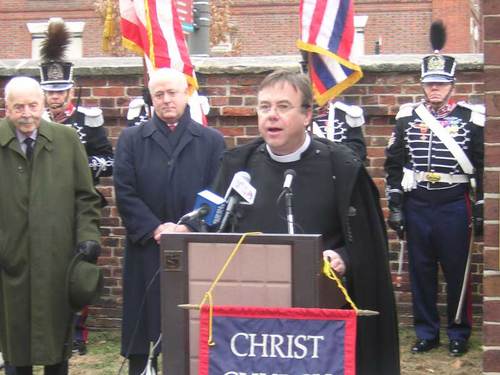
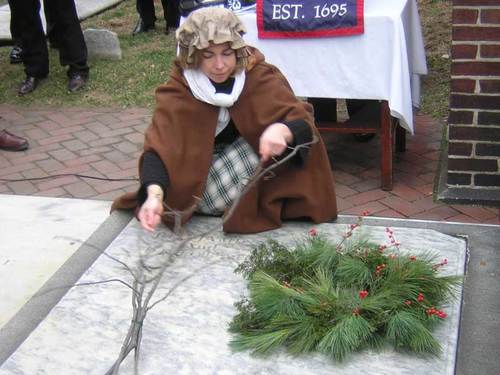
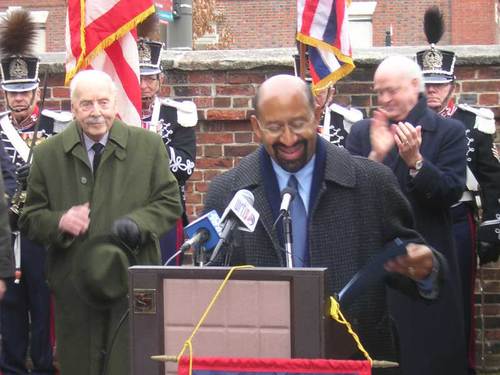
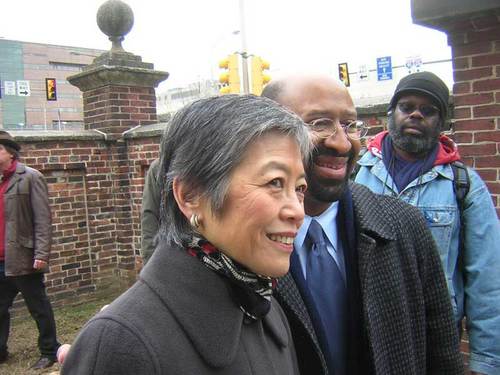
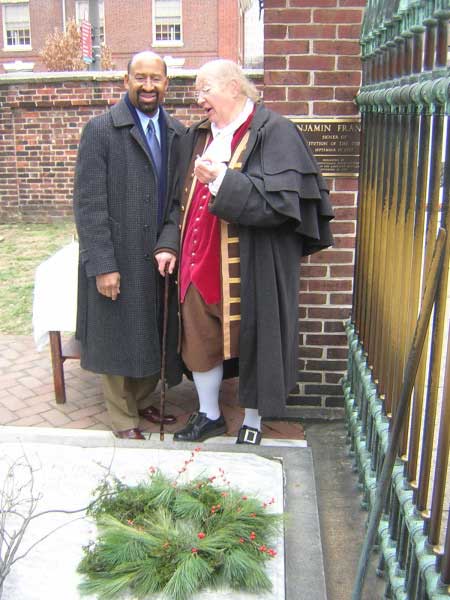
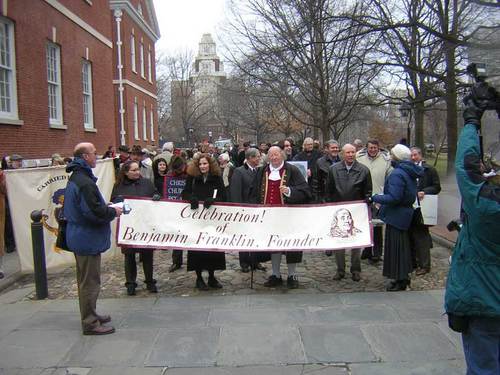
Remarks at Dr. Franklin's grave marker, Donald Smith, Chairman, Celebration Committee
Stuart Watson And Donald U. Smith
In his will, Dr. Benjamin Franklin set aside money, with the interest to go to underwriting apprenticeships. He clearly understood the value of compound interest, and wanted this program to do good for a long time after he was gone. But he decreed that the funding should end after 200 years, when he said he could no longer envision what the world would be like. 200 years was 1990, eighteen years ago. But I like to think that Dr. Franklin would appreciate many aspects of what we do here today.
We are gathered to celebrate the 302nd birthday of Dr. Franklin, and this year we recognize yet another aspect of his genius — fostering curiosity and achievement by women. Over the last few years we have celebrated other sides of his genius — Building the City, Ethical Thoughts and Actions, Creation of the Postal System, and Inventing the Political Cartoon among others.
Our theme in 2008 is "Franklin's Legacy; Women in Science". Though such terms as Limnology and Ameloid had not yet been coined, Dr. Franklin would have grasped their significance, and would have been excited by the research being done today. I believe he would have understood us better than he expected.
And so we feel we understand him — this great American. We are honored to pay our respects.
2007 Celebration! - Franklin and Ethics
Arthur Caplan, Ph.D.
Like their twenty-first century counterparts, eighteenth century Americans wrestled constantly with ethical and moral dilemmas. Whether it was the desirability of vaccinating against smallpox, placing lightning rods on top of buildings to draw the strikes away or declaring an independent government, Benjamin Franklin often played the role of advocate. He recognized, however, the importance of seeing the issue from multiple sides and basing his decisions on reason. Contemporary scientific advances demand new ethical decisions. The 2007 Celebration! of Benjamin Franklin, Founder explored the issue of Franklin and Ethics.
Arthur Caplan, Ph.D. gave the keynote address: "What would Ben have said about human cloning (and other contemporary bioethics conundrums)?"
Dr. Caplan received the 2007 Franklin Founder award for his work in bioethics and for continuing the role embraced by Franklin of not fearing scientific advances but using them for the improvement of society.
2006 Celebration! - Still Celebrating! Franklin at 300
Claude-Anne Lopez And B. Franklin Reinauer II
Franklin loved a gathering and the idea of Americans celebrating his life 300 years after his birth would have delighted him. He took pains to be remembered, following his own advice. "If you would not be forgotten, As soon as you are dead and rotten, Either write things worthy reading, Or do things worth the writing."
Franklin did both well ensuring him a place in the nation's history and in the hearts of its citizens. On this 300th birthday of Benjamin Franklin, the Franklin Celebration was pleased to honor those who kept Franklin in the vanguard of great American leaders. This year's prestigious Franklin Founder award is being given to noted historian, Claude- Anne Lopez and Benjamin Franklin Reinauer, II, founder of Celebration! of Benjamin Franklin, Founder.
Claude-Anne Lopez, former associate editor of the Papers of Benjamin Franklin, and author of several books on Franklin including Mon Cher Papa and The Private Franklin delivered the keynote address: My Life with Franklin.

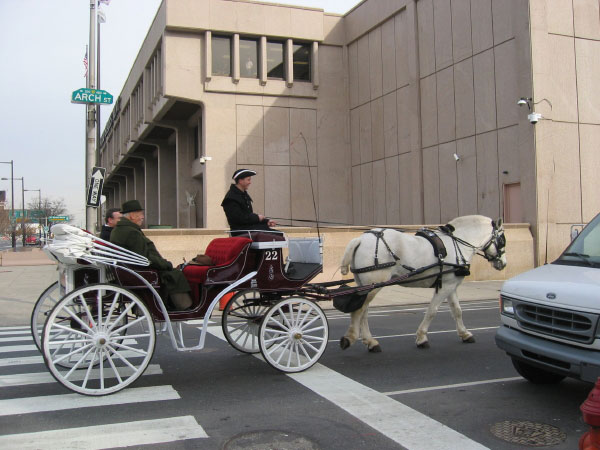
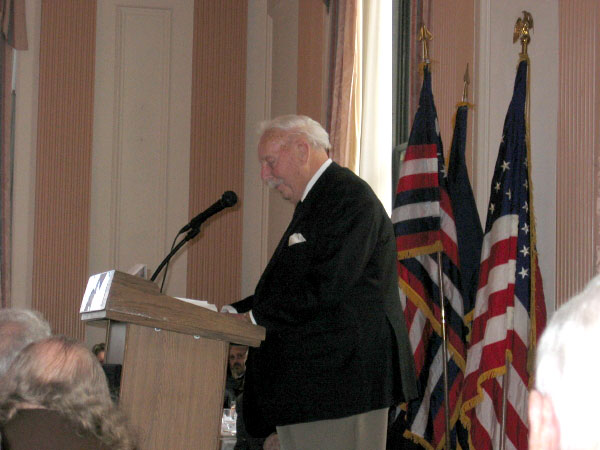
IN MEMORIAM
Benjamin Franklin Reinauer, II, who provided the impetus for the formation of Celebration! of Benjamin Franklin, Founder, died on January 21, 2009 at the age of 92. President of the Old Guard Alumni at the University of Pennsylvania, Reinauer decried the lack of a public celebration of Benjamin Franklin’s birthday. In typical Reinauer fashion, he enlisted the support of fellow alumni and began calling on heads of Franklin founded organizations to form a collaborative partnership to annually celebrate different facets of Franklin’s extensive legacy.
Themes ranged from freedom of the press to the most recent: achievements after retirement, and individuals at the summit of their professions came to offer their thoughts on achievements attained and goals yet to be reached. Franklin Reinauer continued to play an active role in this young organization, meeting with potential recipients of the Franklin founder award, maintaining an extensive correspondence both by email and regular mail and faithfully attending meetings despite a three hour drive each way until this past year when he would attend via conference calls. Just one week prior to his death he presented the 11th Franklin Founder Bowl to P. Roy Vagelos, M.D. He commented to his family on the return home that “It was a good day.” It was and it will continue a testimony to the legacy not only of Benjamin Franklin but to his namesake, Benjamin Franklin Reinauer, II.
For more details on Franklin Reinauer’s rich and rewarding life beyond the Celebration! of Benjamin Franklin, Founder his obituary in the Star Ledger provided an extensive overview: Click here
2005 Celebration! - Franklin and Architecture: Building the City
Robert Venturi And Denise Scott Brown
Philadelphia in Franklin's era was known as the Athens of the New World. As master builders and carpenters erected homes ranging from simple to elaborate, Franklin turned his attention to safety features that were both useful and practical helping to provide the infrastructure for this growing metropolis. Through his Pennsylvania Gazette he stressed the need for a better water supply, urged the formation of fire companies, and suggested the paving and lighting of streets. In his private time he created the Franklin stove and his experiments with electricity gave rise to the lightning rod. This year's 299th birthday celebration of Benjamin Franklin examined building in Philadelphia and the role Franklin played. A morning seminar was devoted to "Franklin's Philadelphia: Understanding It and Preserving It" with lectures by Penelope Hartshorne Batcheler, retired architectural historian, Independence National Historical Park; Anna Coxe Toogood, historian, Independence National Historical Park, Bruce Laverty, Gladys Brooks Curator of Architecture, The Athenaeum of Philadelphia; and John Gallery, executive director of Preservation Alliance for Greater Philadelphia.
The keynote speakers at the luncheon the 2005 honorees were Robert Venturi and Denise Scott Brown, honored by Celebration! of Benjamin Franklin Founder as extraordinary architects who took Franklin's Philadelphia to new heights while retaining a sensitivity to its 18th century roots.
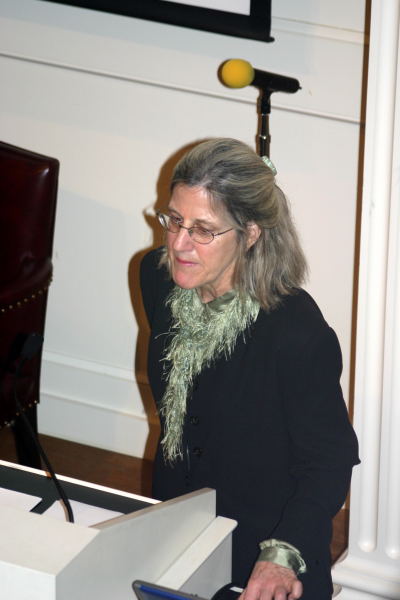
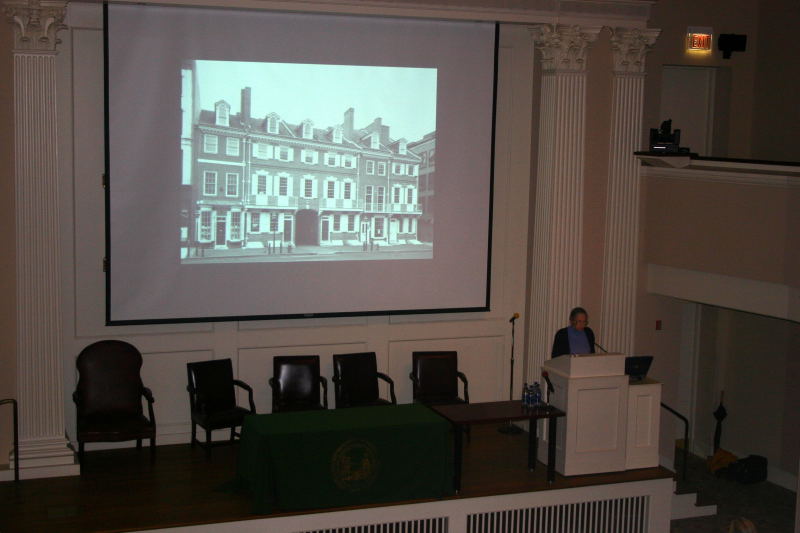
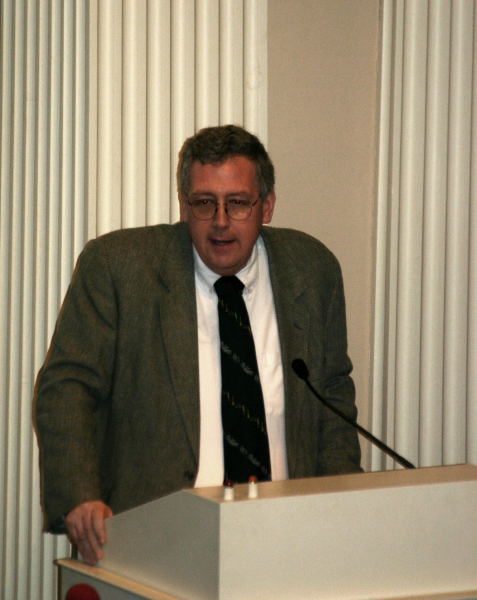
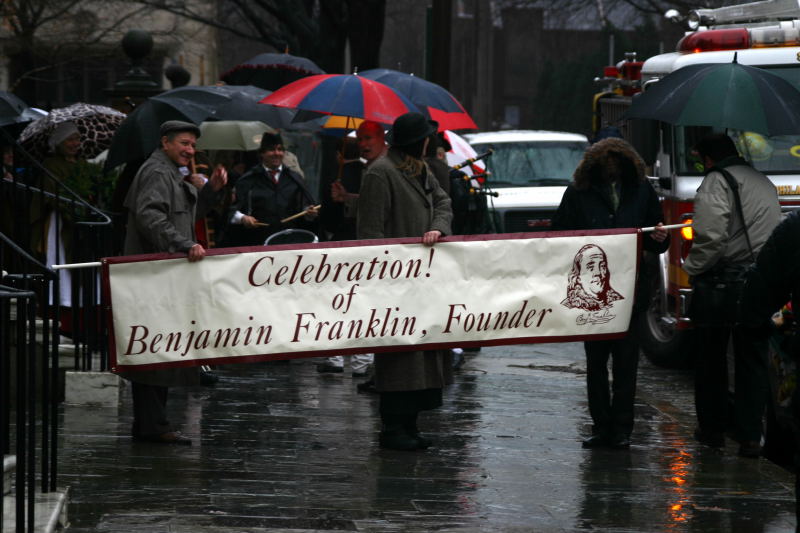
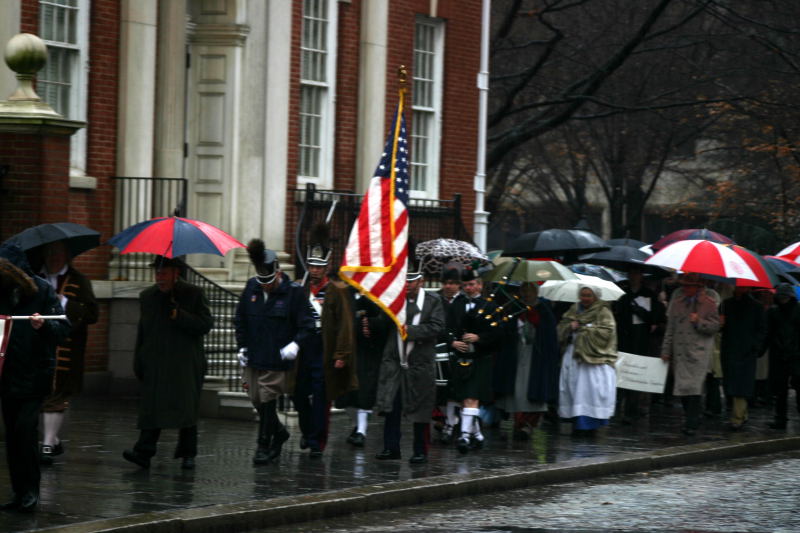
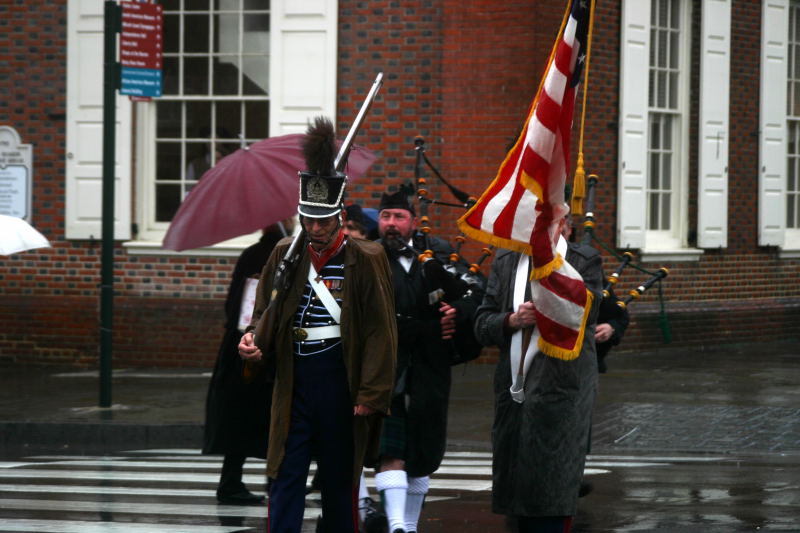
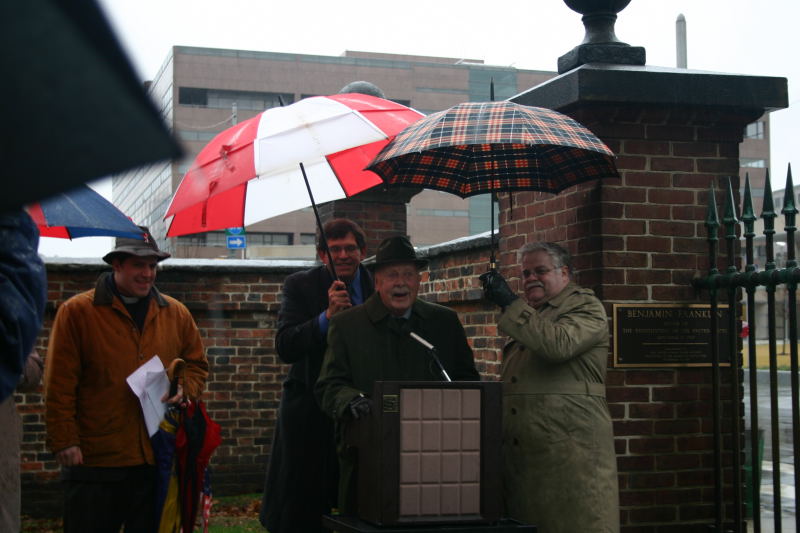
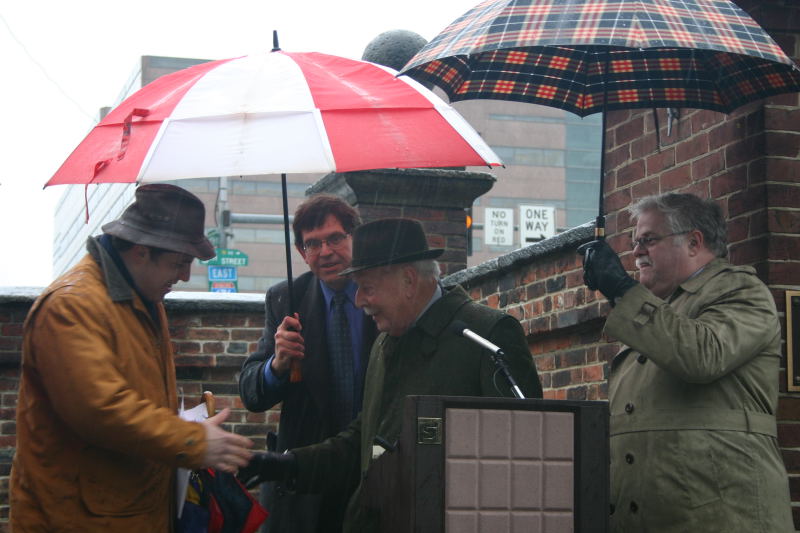
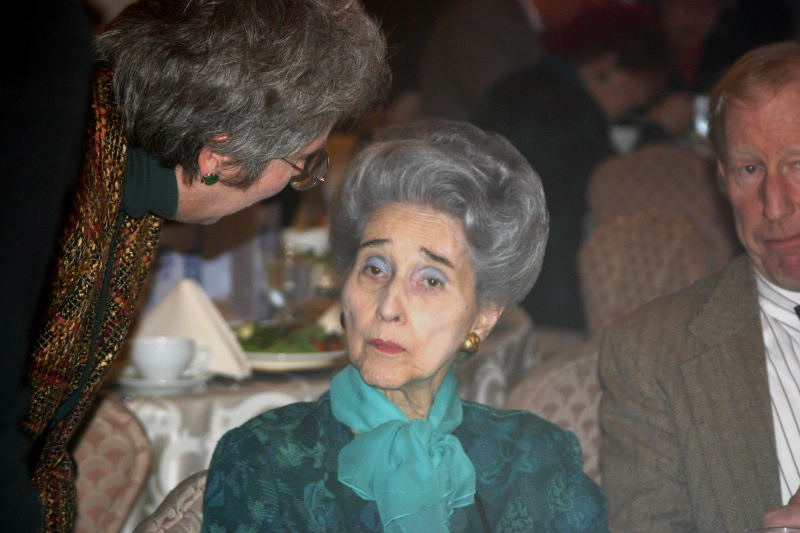
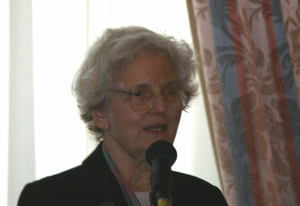
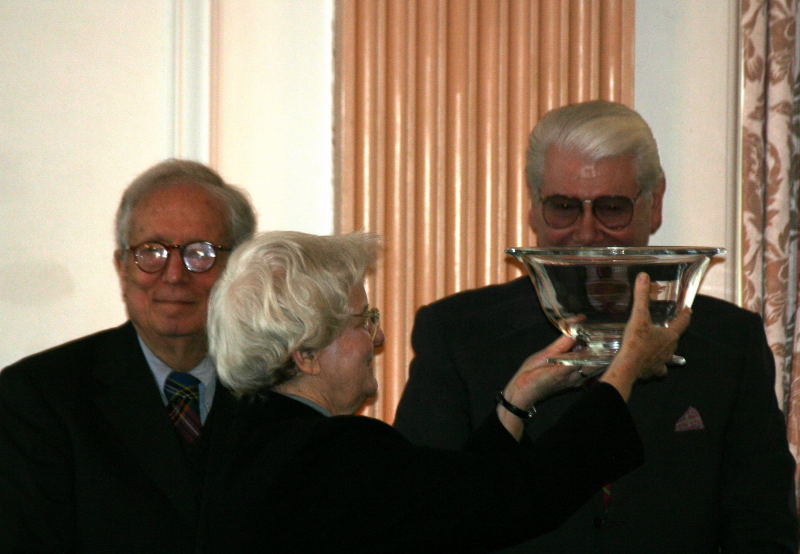
2004 Celebration! - Franklin and Freedom of the Press
Tony Auth
In 1728, Benjamin Franklin purchased The Pennsylvania Gazette and used his newspaper to espouse various causes. IN 1754, he published the first American political cartoon. His "Join or Die" rendering of a snake cut into segments urged the colonies to unite to negotiate with the Iroquois. This drawing, used in different forms, became one of the best known symbols of the American Revolution. This year's Celebration commemorated the 275th anniversary of Franklin's publishing career with The Pennsylvania Gazette and the 250th anniversary of the first American editorial cartoon, both significant elements in the development of the free press.
The Franklin Founder award was presented to Tony Auth, political cartoonist for The Philadelphia Inquirer, who has taken issues of the day and presented them to the public in ways that evoke humor, discussion and critical thought.
A special award was also presented to Ellen Cohn, Editor in Chief of the Papers of Benjamin Franklin, in celebration of the 50 years of publication of Franklin's writings and correspondence, which has resulted in 37 out of a projected 47 volumes. Ms. Cohn spoke at the morning seminar on "Freedom and the Press: New Insights from the Franklin Papers."






